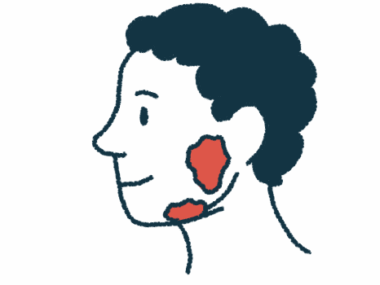Metopirone Found to Safely Maintain Lower Urine Cortisol Levels
Written by |

Metopirone (metyrapone) safely and successfully maintained lower levels of urinary cortisol over nine months in adults with endogenous Cushing’s syndrome, according to data from the six-month extension of the PROMPT trial.
Treatment with the HRA Pharma Rare Diseases oral therapy also was found to ease other Cushing’s symptoms and to improve patients’ quality of life.
The results of the Phase 3/4 study (NCT02297945) will be presented by HRA Pharma at the European Congress of Endocrinology 2021, held online May 22–26.
“The PROMPT study confirms that [Metopirone] is effective and safe for treating endogenous Cushing’s Syndrome in the long term,” Lynnette Nieman, MD, international coordinator of PROMPT said in a press release emailed to Cushing’s Disease News. “These extension results are significant given the unmet medical need for patients with this rare disease.”
People with endogenous Cushing’s produce too much adrenocorticotropic hormone (ACTH), usually due to the presence of a tumor on the brain’s pituitary gland. Elevated ACTH levels trigger the adrenal glands sitting atop the kidneys to produce large amounts of cortisol, which in turn leads to the onset of Cushing’s.
Metopirone blocks an enzyme called 11beta-hydroxylase enzyme, which is needed for cortisol production. The medication has been approved in Europe for the treatment of endogenous Cushing’s based on several observational and retrospective studies published more than 50 years ago.
However, prospective studies — evaluating the effects of Metopirone from a “forward” rather than a “backward” time perspective — have not been conducted so far.
The first portion of the open-label PROMPT trial — the first prospective study to assess the safety and effectiveness of Metopirone — enrolled 50 adults with endogenous Cushing’s. Participants received capsules containing 250 mg of Metopirone over 12 weeks (three months). Treatment efficacy was assessed based on the mean level of three urinary cortisol measurements.
In 80% of the patients, Metopirone normalized urinary cortisol, or at least lowered it by half. The treatment, which was found to be safe and well-tolerated, also eased other Cushing’s features and mitigated symptoms of associated co-existing conditions, improving participants’ quality of life.
Patients whose urinary cortisol was normal or did not exceed two-fold of the upper limit of normal (165 nanomoles per 24 hours) at week 12 were invited to participate in the six-month extension portion of PROMPT.
A total of 41 patients were eligible to enroll in the extension study and 35 completed it. Six patients discontinued treatment due to adverse events or following a decision made by their physicians or themselves not to continue.
By the end of the extension study, 49% of those tested had normal mean levels of urinary cortisol, while another 23% saw their cortisol levels drop by 50% or more compared with pre-treatment levels at the study’s start. Moreover, in 31% of the patients, urinary cortisol levels were less than two times those of the normal upper limit.
The rates of patients who responded to treatment were similar at the end of the first portion of PROMPT and at the end of the extension study (80% vs. 71%).
Additionally, 27% of participants saw their late-night salivary cortisol levels normalize by the end of the extension study. Improvements in physical disease features, co-existing conditions, and quality of life also were sustained over time.
While Metopirone continued to show good tolerability over the extension study, five additional patients had at least one study drug-related adverse event. Overall, 31 out of the original 50 participants experienced at least one adverse event after nine months of treatment. No cases of adrenal insufficiency were reported during the extension period.
“At HRA Pharma Rare Diseases, we are committed to the Cushing’s Syndrome community,” said Evelina Paberze, chief operating officer of HRA Pharma. “Investing in PROMPT and demonstrating the effectiveness of [Metopirone] in treating endogenous Cushing’s Syndrome in the long term is part of our engagement.”





